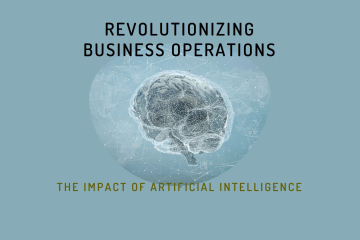At the helm of Microsoft’s AI and technological innovation is Kevin Scott, the company’s Executive Vice President of AI and Chief Technology Officer. Under his leadership, Microsoft is not just participating in the AI revolution but driving it, crafting technologies that promise to redefine industries and everyday life.
Kevin Scott’s journey to this pivotal role is marked by a blend of academic prowess and industry leadership. Before his tenure at Microsoft, Scott was instrumental in LinkedIn’s technology and engineering growth, steering the company through its IPO and rapid expansion. His earlier career includes significant contributions at Google, where he managed mobile ads engineering and played a key role in the integration of AdMob.
Scott’s influence stretches beyond corporate corridors. He is the creator and host of the “Behind the Tech” podcast, which delves into the stories behind today’s tech giants. His book, Reprogramming the American Dream, outlines how AI can be harnessed to benefit all layers of society, not just the elite. Scott has also made notable contributions to academic research, including patents and publications on search technology and dynamic binary rewriting, earning accolades like the Google Founder’s Award and the Intel Ph.D. Fellowship.
In addition to his corporate and academic achievements, Scott is an active advisor to Silicon Valley startups and an angel investor. He founded the non-profit organisation Behind the Tech, serves as an emeritus on the Anita Borg Institute’s board, and is a trustee of The Scott Foundation. His involvement with Harvard’s Technology for Public Purpose (TAPP) program underscores his dedication to leveraging technology for societal good.
Microsoft’s AI Strategy: Accessibility and Innovation
At Microsoft Build 2024, Scott outlined the company’s vision for AI, emphasizing their commitment to broadening access to AI tools. “With over 50,000 customers on the Azure AI platform, ranging from startups to Fortune 100 companies, we’re making AI accessible on a massive scale,” Scott noted.
A cornerstone of Microsoft’s AI strategy is its partnership with OpenAI. Scott spoke about this collaboration with enthusiasm, highlighting the recent launch of GPT-4o. This multimodal model, capable of processing text, video, and speech, represents a significant leap forward. “GPT-4o is an extraordinary achievement, designed to handle diverse inputs and deliver nuanced responses,” Scott explained.
Microsoft’s involvement with GPT-4o goes beyond mere usage; it extends into development and optimization. “We’ve invested heavily in refining GPT-4o, focusing on both the model and its supporting infrastructure to ensure safety by design,” he remarked.
Scott also underscored Microsoft’s emphasis on efficiency. The advancements with GPT-4o have made interactions 12 times cheaper and six times faster compared to its predecessors. “The efficiency gains are substantial,” Scott said, “and we anticipate continued improvements in both robustness and cost-effectiveness.”
Looking forward, Scott is optimistic about AI’s trajectory. “We’re not seeing diminishing returns. Instead, we expect AI to evolve rapidly, becoming more powerful and affordable at an impressive rate,” he stated.
Microsoft’s collaboration with OpenAI is pivotal in pushing the boundaries of AI, aiming for ambitious goals that drive progress in capabilities, efficiency, and safety. Scott’s vision is clear: “At Microsoft, we challenge ourselves to pursue truly ambitious objectives, ensuring our technologies are not only innovative but also broadly beneficial.”
As Microsoft continues to lead in AI, Kevin Scott’s vision and expertise are central to shaping a future where technology serves everyone, unlocking new possibilities and driving impactful change.




